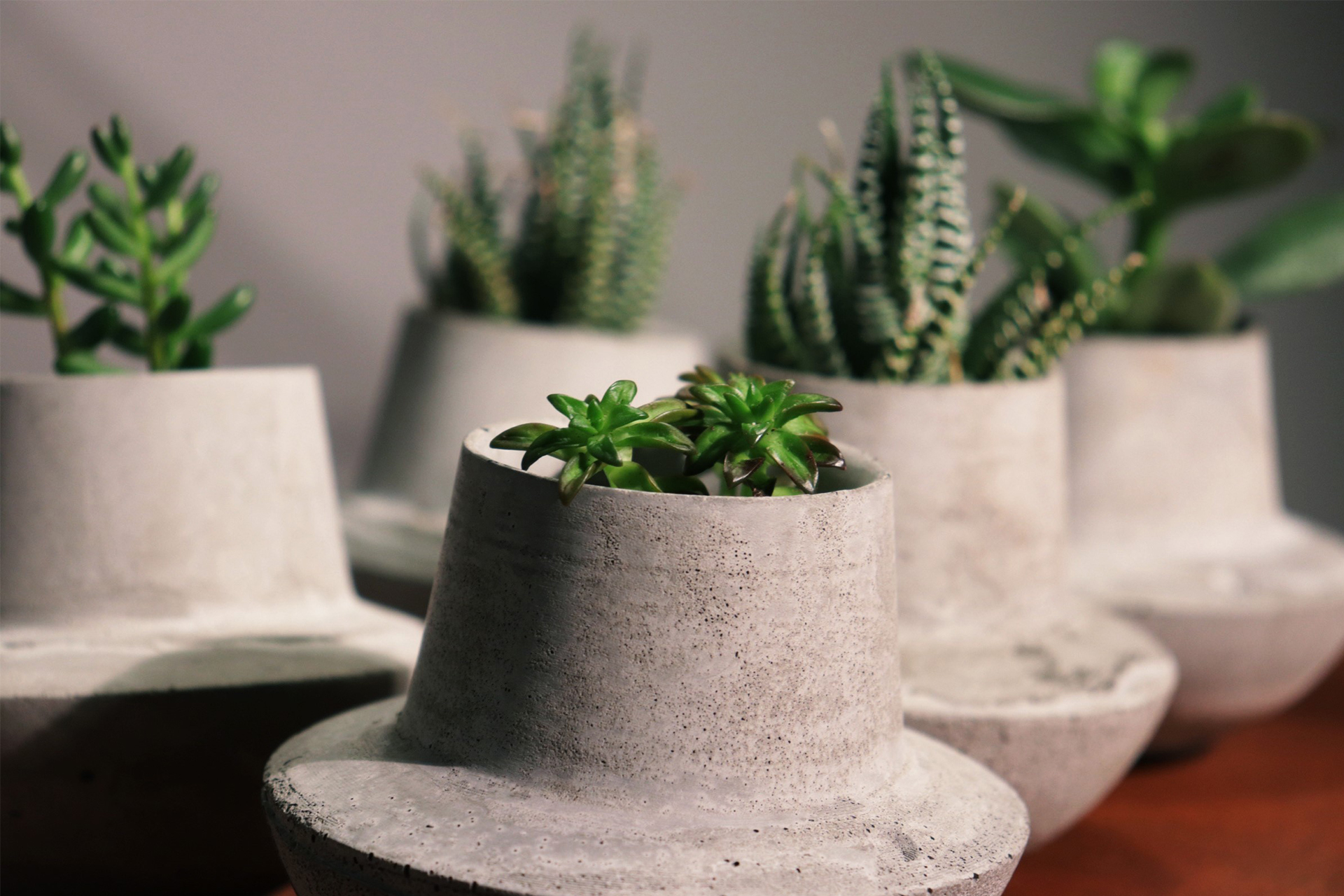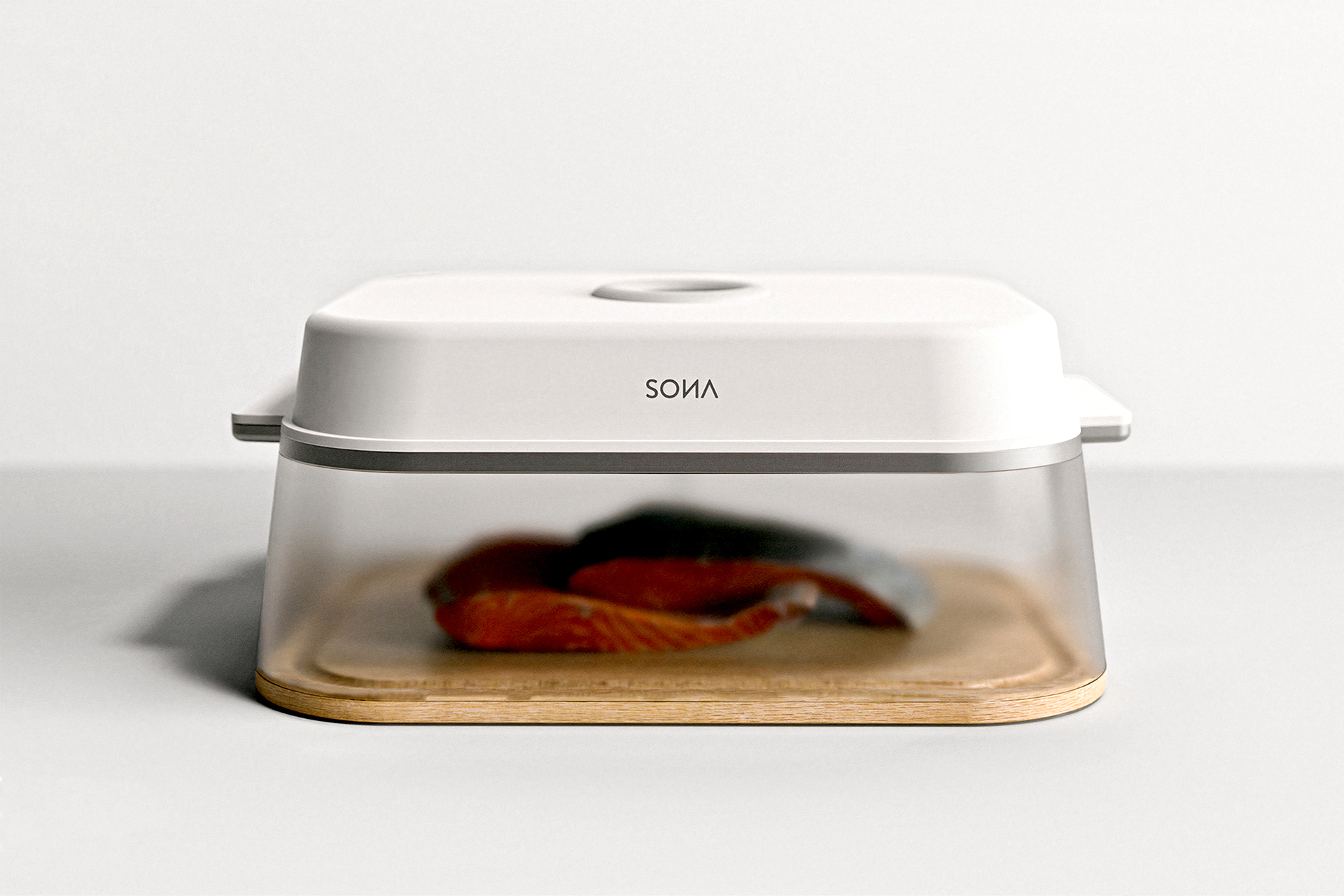Six inventions took home top prizes at the International Housewares Association’s 31st annual Student Design Competition. The winners were selected from what the IHA reports as a record-breaking 358 entries from 31 schools around the world.
The winning products were an ultrasonic thawing device for quick and safe meat thawing; a light therapy lamp for people with Seasonal Affective Disorder; a wobbling plant holder that aids human mental health and plant health; a combined air filtration and vacuum appliance; a rainwater recycling system for sustainable water use; and a tooth-brushing companion for kids.
Winning projects are selected for their innovation, understanding of production and marketing principles and quality of entry materials, according to IHA. Since 1993, more than 6,900 entries have been submitted to the IHA student design competition. Several winners have launched successful careers in the housewares and design industries and have returned to judge other student contestants.
The winning industrial design students and their products will be on display during The Inspired Home Show 2024, IHA’s March 17-19 at Chicago’s McCormick Place. The winners and their products can be viewed on the show’s website.
First Place Winner
Alex Orelind, a junior at Western Washington University, won first place and $3,500 in grand prize money for Sona (pictured above), an ultrasonic meat-thawing chamber with a cloche-like construction. The lid uses heat-generating, high-frequency sound waves to ensure uniform, safe and efficient thawing of frozen meat, poultry and fish products. Sona also features a wooden cutting board base and electromagnetic glass sides that change from frosted to clear to visually indicate when the meat is thawed.
Judges noted Sona’s simple, effective approach to addressing a common problem in culinary settings, offering a safe solution for the task of thawing meat.
Second Place Winner
William Harrison Huth will take home the second-place prize of $2,500 for Ease, a light therapy lamp that helps people treat Seasonal Affective Disorder without compromising stylish design. Unlike traditional therapy lights that often look clinical and plain, Ease is designed to seamlessly fit into designed home spaces as an elegant lamp. The wireless halo light can be removed from its magnetic base for on-the-go use and charging.

Ease
Third Place Winners
Four products earned third place and $1,500 each.
Wobble, by Carl Sabroff, a senior at the Milwaukee Institute of Art and Design, is a wobbling indoor plant pot with a dual purpose: its fidget-toy-like design encourages interaction that builds plant resilience and helps owners connect with their plants, something the designer said has been shown to benefit mental health. The rounded plant pot is made from 100% concrete, a sustainable and low-cost material.

Wobble
The Mode, from Alexander Mossdorf, a senior at Carleton University, is an air-quality appliance with air filtration and vacuuming capabilities. The two-in-one appliance is designed to promote a cleaner, safer environment while cutting down on costs compared to other such products on the market.

The Mode
Rain Recycle, by Luke Kauranen, a junior at Western Michigan University, is a rainwater collecting system that promotes sustainable water use, specifically in dwellings that lack roof or gutter access. The 24-inch-tall device is fitted with a collapsable umbrella-like funnel that captures and diverts rainwater into a tank, making Rain Recycle a cost-effective, low-maintenance and attractive alternative to existing rain recycling products.

Rain Recycle
Swishy, from Julia Cutajar, a University of Notre Dame senior, is a whale-shaped toothbrushing companion designed to engage kids in proper toothbrushing. The design features a set of “whale” teeth that light up in quadrants to show kids which teeth they should be brushing as they follow along with the two-minute-long sequence. The whale’s blowhole doubles as a toothbrush holder and triggers the whale’s mouth to open and close when the toothbrush is removed and replaced.

Swishy
Honorable Mentions
Six products merited an honorable mention. Their designers will receive $250 each:
- Kate Baring and Terra Sullivan, juniors at Western Washington University, for Chow, a dog treat maker.
- Maximilian Murg, senior at the University of Applied Sciences – FH Joanneum, for Nory, a gender-inclusive sex toy.
- Davi Patterson, senior at Iowa State University, for Wink Wall, a decorative wall organizer.
- Drew Janszen, senior at Purdue University, for Toasti 100, a toaster with improved safety and UX features.
- Dillon Narcisse, a graduate student at the University of Houston, for Revera Hairwashing System, a hair-washing tool for people with limited mobility.
- Wyatt Guthrie, senior at the Cleveland Institute of Art, for eLeaf, a smart plant monitor.
Judges
This year’s winners were selected by an esteemed panel of 18 judges, including four past Student Design Competition winners who have since had successful industrial design careers. Judith Anderson, industrial design professor, Massachusetts College of Art and Design; 2015 winner Evan Cincotta, industrial designer, Clixo, Brooklyn, N.Y.; Chris Cunningham, Cunningham Design, Chicago, Ill.; Michael Ditullo, independent designer, Portland, Ore.; Radu Ghiorghie, vice president of product design, iDesign, Akron, Ohio; 1995 winner Robert Giacolo, new product development program manager, Transcendia, Naperville, Ill.; Jacob Greider, industrial designer, Honey-Can-Do, Berkeley, Ill.; Carly Hagins, assistant professor of product designer, University of Kentucky, Lexington, Ky.; Michael Kahwaji, professional specialist of design practice, Richmond Institute of Design and Innovation at Western Michigan University, Kalamazoo, Mich.; Mark Krasne, product design and development, Select Brands, Lenexa, Kan.; and Carter McGuyer, principal and founder, Carter McGuyer Design Group, Inc., Florence, Ala.
Also, 2018 winner Anastasia Miller, founder, Small Moves Studio, Brooklyn, N.Y.; 1996 winner Jennifer Nemec, principal and founder, Ideation Studio Inc., Chicago, Ill.; David Richter-O’Connell, associate professor, Industrial Design, University of Wisconsin – Stout, Menomonie, Wis.; James Rudolph, co-founder and program manager, Rudolph Design Studio, St. Joseph, Mich.; Michael Seskauskas, visiting instructor and industrial design, University of Illinois at Chicago, Chicago, Ill.; Rusty Snell, design director, mDesign, Cleveland, Ohio; and Kimberlee Wilkens, director, BDes in Industrial Design and assistant professor, Industrial Design, University of Illinois at Chicago, Chicago, Ill.





